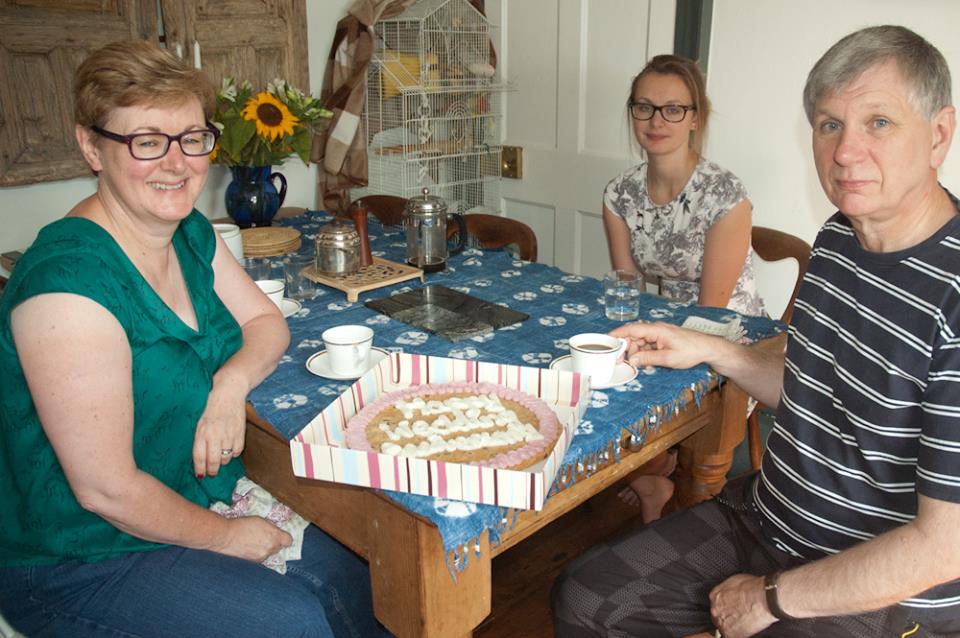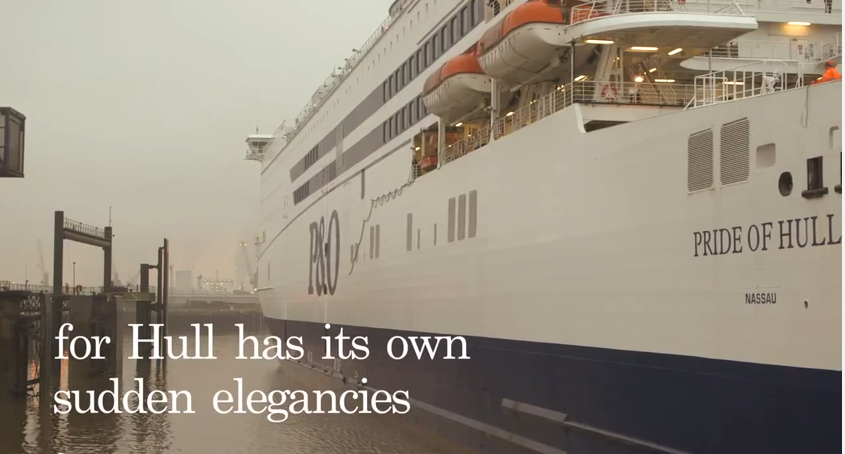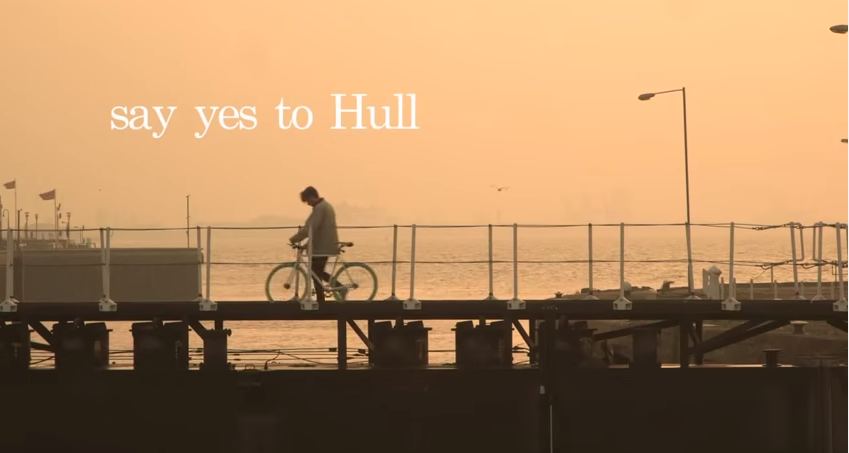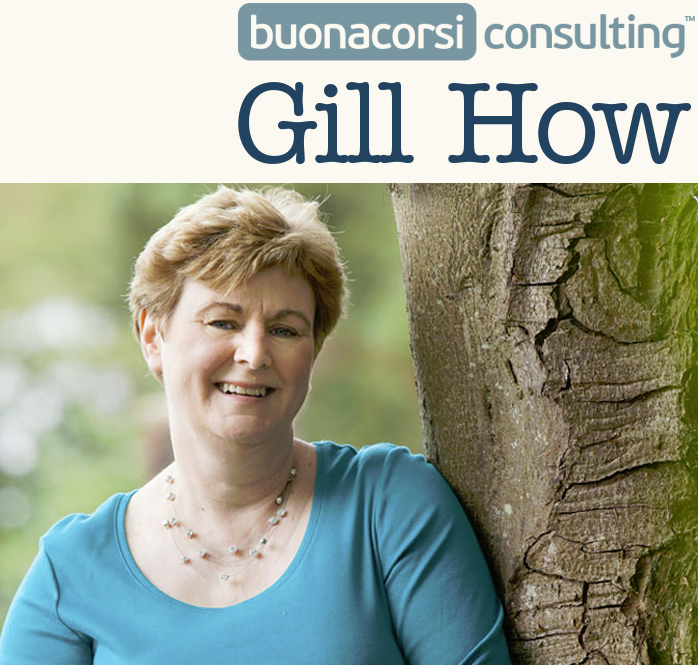For our wedding anniversary weekend, we went to Beverley, East Yorkshire, which is near to Hull and the Humber Bridge. We were able to meet our daughter, Hannah, which was a joy!
We also caught up with a former client, now colleague and friend of mine, Alison, who lives nearby, and met her husband Daniel and daughter Alethea for the first time!
Conversation with Alison has always been thought provoking and rewarding. This time was no exception. As well as now living and working in Hull, and catching up on all our news, we were able to find about what is happening with Alison and Daniel’s involvement with their church in Hull, which has a ministry and emphasis on supporting the poor.
Hull does not always have the most positive of reputations, which can make it difficult for people who live there. It can be a little bit like how it was for me when I was younger – when I didn’t really like to say that I came from near Liverpool. It can be so hard for a city, a family or an individual to get out of a negative rut – of image, perception and reality. Articles in the press can exacerbate things too – for example this article: no doubt factually correct, showing that last year Hull was the worst city in the UK to find a job.
At first, Alison’s own experience seemed to back up the current press image – she told me that she has come across levels of poverty and deprivation in Hull which to her, have seemed more challenging than when she lived and worked in London. The stories she told seemed to have some common themes, about low self esteem, patterns of unemployment and educational under-attainment, spanning families and reaching across generations within families. These patterns give people no role model for change or being a different way. It’s hard to hope for improvement from a place of no change.
A funny thing happened to me as she spoke. I found myself bumping back towards my own feelings of unhappiness, from earlier in my life. My own story contains a mixture of difficulty, challenges and achievement in different ways – but I imagine unhappy feelings are pretty much the same worldwide. It wasn’t really what I wanted as part of a celebratory weekend away.
Something else different happened too. I suddenly became very conscious of my usual pattern – to avoid going deeper at this point, and then to turn the conversation another way. Leading to emotional separation rather than connection. This time I made a different choice. It was very hard to stay present in the relationship with Alison, but I did.
The underpinning encouragement I was drawing on, as well as the trust in my relationship with Alison, came from Dr Brené Brown’s work on shame, vulnerability and empathy. In her short cartoon clip, “The Power of Empathy”, she argues that to offer empathy we need to be willing to feel the feelings of the person we are listening to. I had watched this clip quite a few times, loved it and agreed with the idea.
[youtube https://www.youtube.com/watch?v=1Evwgu369Jw&w=853&h=480]This time though, I was learning quite how hard it can be to make that step. I was not wanting to feel my unhappy feelings at all. This empathy stuff is not intellectual in any way!
I am so glad the strength of my relationship with Alison allowed me to take a risk. I expressed my feelings, my fears and listened more to what Alison had to say. Alison acknowledged what I said. I was able to hear some more about what they do with their church, telling me that their approach is one of engagement and empathy as an equal with the other person’s starting point – things like sharing meals with you, walking in the park with you and your children, understanding and connecting with your story – it made a lot of sense – helping people feel valued, connected, alive and growing.
Reflecting afterwards I realised two things:
- My decision to stay present allowed me to be more open and more compassionate to myself about my own feelings of unhappiness. From this I was somehow less fearful that they would encompass or drown me completely. This made it a far more pleasant place to be.
- I also then found it less fearful being near the difficult place of others. Other people somehow became less threatening (to my own wellbeing, if nothing else).We just all seemed in it together, on the yo-yo of our own journeys, making progress in our own ways and at our own pace.
So the bonus for me, is that I now know that with empathy – I need not fear pinging back on a “forever basis” to unhappy feelings. Which feels quite a step forward in creating space for hope, happiness and growth in my own life.
And for Alison, her church and their approach to engagement with the people of Hull, she tells me it does, little by little, allow people to see that they are good at things, that they have strengths, that there are possibilities to see that change in a positive direction is possible, and to make change in tiny steps. In summary, it’s a rewarding place to be. And an important part of the story of Hull moving forward.
The church is operating in the wider context of the city too – this clip shows Hull’s bid for the city of culture “This City Belongs to Everyone” (4 minutes) – showing many of its positive qualities. We all need to be part of a city’s endeavour to change attitude and image – this has happened in Liverpool too – which is an amazing place to visit today.
And the photo of the bridge? Mike Armstrong’s picture spoke to me of beauty, warmth, life, connection and possibility. These all seem to be qualities relevant to this topic. We also walked on it on the Sunday morning with our daughter and experienced the scale of the bridge for ourselves.
Hope is so important. The aim of my blog is show how relationship, how empathy, can be the necessary ingredient, the accelerator of the shift, for ourselves and our communities. That change can happen and it is better if we do it together. And that empathy is not intellectual – it is a braver act and takes more courage, fortunately with benefits for all the parties, than you might think.
What is your non-intellectual experience of offering empathy, and the courage needed to feel what the other person is feeling, as part of making the bridge?
Photo credit of Humber Bridge: Mike Armstrong www.iconik.co
Photo of our family: by Anna Heddle, our fantastic Airbnb host in Beverley










Very interesting video and good explantion, especially for anyone with aspergers – gives a better understanding of empathy, which I have but it’s just different from most others people’s. David x